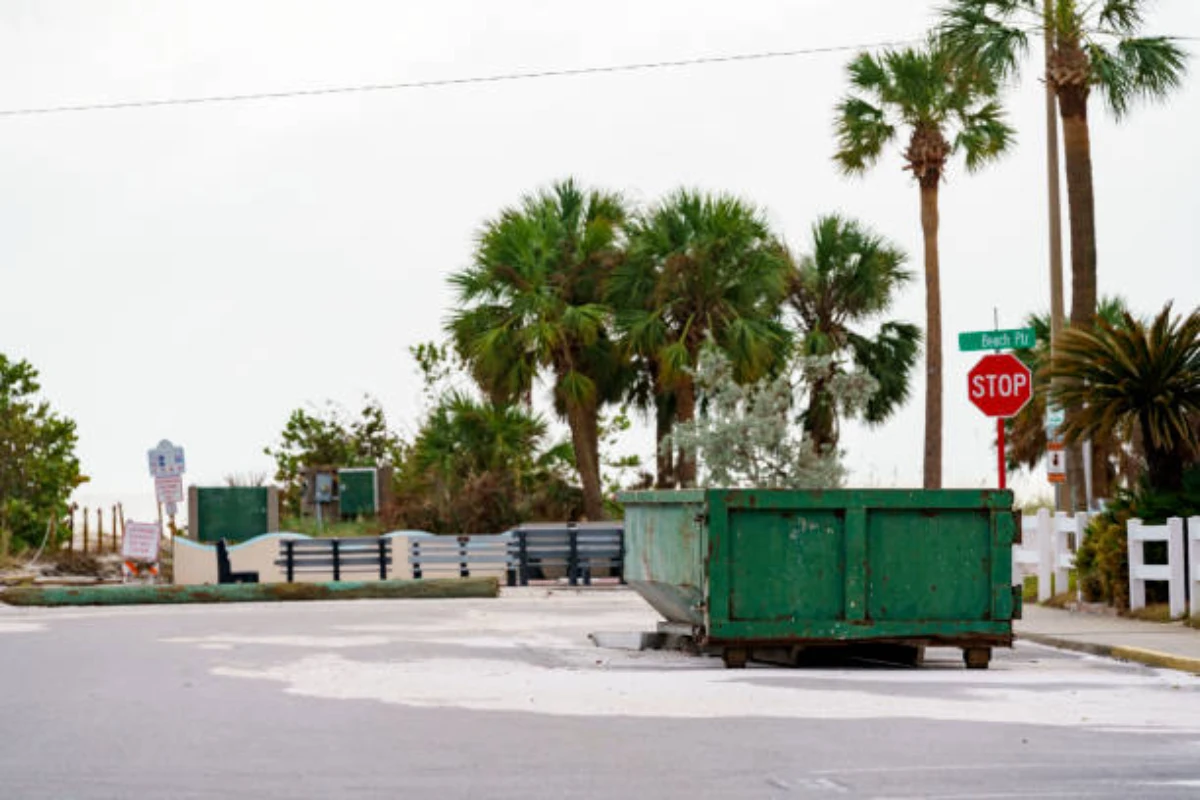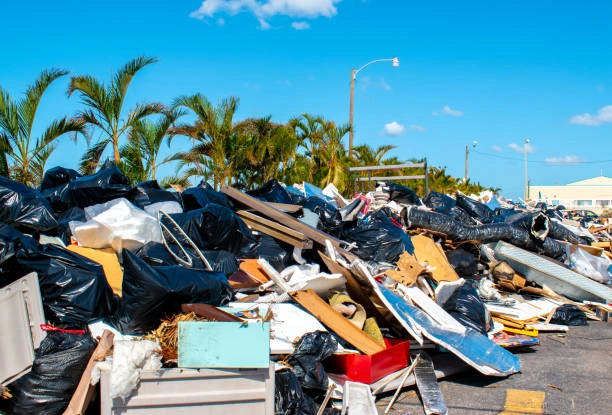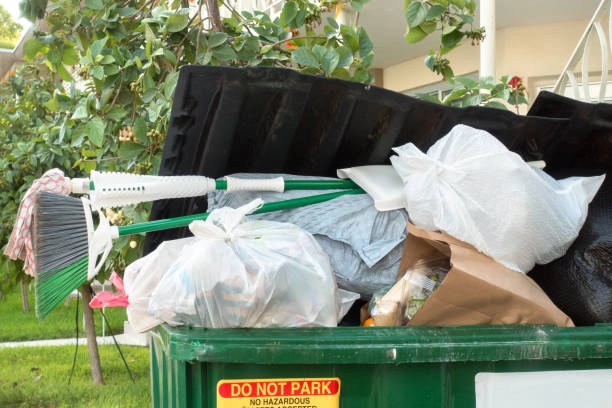Is Dumpster Diving Legal on Private Property in Florida?

Dumpster Diving Laws in Florida: What You Need to Know
Navigating the legality of dumpster diving in Florida involves more than just knowing if it’s allowed—it requires a close look at both state laws and local ordinances. Although dumpster diving isn’t outright illegal, certain contexts, especially on private property, can lead to legal complications. So, is dumpster diving legal on private property in Florida? The answer largely depends on whether the property owner permits access to their waste containers. Florida’s private property laws empower owners to control access to their premises. Entering private land—including areas with dumpsters—without permission can result in trespassing charges, which carry the risk of fines or even criminal penalties. Therefore, it is critical to respect property boundaries and always seek permission before accessing any privately-owned dumpster. Local municipalities may also impose their own rules regarding waste disposal and scavenging. In some cities, dumpster diving is explicitly prohibited, while others may allow it with certain limitations. Individuals should research local regulations or consult legal professionals when unsure of the legal implications.
Ready to connect with top legal professionals? Get immediate support— Call us at 877-550-8911.
Legal Implications of Dumpster Diving on Private Property
Dumpster diving laws in Florida vary based on where the dumpster is located. While the act itself is generally allowed in public areas, private property introduces a host of legal risks. Diving into dumpsters behind businesses, apartment complexes, or gated communities without permission is often classified as trespassing. In Florida, trespassing is a criminal offense that can lead to arrest or fines. Business owners and residential landlords can request that unauthorized individuals vacate the property and may involve law enforcement if the request is ignored. Some properties also have posted warnings, which can strengthen legal claims against violators. Furthermore, discarded items are often still considered the property of the owner until they are officially abandoned or collected by municipal services. This makes taking such items without permission a potential legal gray area.Property Rights and Waste Ownership
Property rights play a pivotal role in determining the legality of dumpster diving. Florida law recognizes the right of property owners to control access not only to their buildings but also to areas where waste is stored. Even if a dumpster is placed in a location that seems accessible, it may still be on private property. The key legal concern is consent. If a dumpster is located behind a fence or marked with no trespassing signs, diving there without permission can easily be interpreted as illegal entry. On the other hand, some businesses place dumpsters in open, shared alleys, creating a murkier legal zone. Still, the safest route is always to obtain permission beforehand.Noteworthy Florida Dumpster Diving Incidents
Several real-world incidents highlight how Florida law treats dumpster diving. In one case, individuals were cited for trespassing after being caught behind a shopping center rummaging through commercial waste. Posted signage made it clear that the area was off-limits, which was a decisive factor in the legal outcome. In another incident, a homeowner called law enforcement after discovering someone rifling through residential bins late at night. The diver was informed by police that dumpster diving on private property without permission is not legal, reinforcing the necessity of owner consent. A third situation involved a non-profit organization that collected expired food from grocery store dumpsters. Despite good intentions, the group faced legal backlash due to trespassing concerns raised by store owners. These cases underline the importance of clearly defined legal guidelines and property rights.Local Ordinances and Municipal Regulations
Local ordinances have significant influence over whether dumpster diving is legal in a particular Florida city or county. While Florida state law sets broad boundaries, local governments often pass additional regulations that directly affect waste scavenging. Some municipalities strictly prohibit dumpster diving on any private land, while others permit it under certain circumstances—like during designated bulk pickup days. For example, cities like Miami and Tampa may have rules that differ drastically from smaller towns or rural areas. Because of these variations, it’s crucial to check local city websites or consult resources like Florida State Legislature to ensure compliance. This is especially important for individuals who move between cities or conduct dumpster diving in multiple locations.Responsible Dumpster Diving Practices
If you plan to engage in dumpster diving, doing so responsibly can help reduce both legal and environmental risks. Here are a few best practices:- Always seek permission: Contact property owners or managers to ask whether dumpster diving is allowed. This small step can prevent legal trouble.
- Use protective gear: Gloves and tools help avoid injury from broken glass, sharp metal, or unsanitary conditions.
- Avoid posted areas: Stay away from dumpsters marked with “No Trespassing” or similar warnings, especially those behind locked gates.
- Clean up after yourself: Leave the area cleaner than you found it to build goodwill and reduce the likelihood of complaints.
Legal Risks and Civil Liability
Even when dumpster diving doesn’t result in criminal charges, it can still expose individuals to civil liabilities. Property owners may sue for damages, especially if they believe the diver has caused harm or disrupted operations. Additionally, there are personal safety concerns. Dumpsters may contain hazardous materials or sharp objects that pose a risk of injury. From both a legal and practical standpoint, it’s important to evaluate the potential consequences carefully. Helpful Resources for Legal Clarity
Helpful Resources for Legal Clarity
To better navigate Florida’s dumpster diving laws, refer to trusted legal resources:
- Florida Department of Environmental Protection
- Legal Information Institute (Cornell Law)
- Florida Bar Consumer Resources
- LegalCaseReview.com – Provides insights on Florida property and trespassing laws.
Frequently Asked Questions (FAQ)
1. Is dumpster diving legal everywhere in Florida?Not necessarily. State law may permit it in public areas, but local ordinances and private property rules can make it illegal without permission.
2. Can I dumpster dive behind a grocery store in Florida?
Only if the store owner grants permission. Most commercial properties are private, and entering them without consent can lead to trespassing charges.
3. What are the penalties for illegal dumpster diving in Florida?
Penalties may include fines, arrest for trespassing, or civil lawsuits if the property owner pursues damages.
4. Are there safe times or places to dumpster dive legally?
Public events, bulk trash days, and businesses that explicitly allow it are safer options. Always avoid diving at night or in gated or fenced areas.
5. How can I know if a dumpster is on private property?
Check for signage, fences, and gates. If in doubt, ask the property manager or owner before proceeding.
Don’t wait to secure the legal representation you deserve. Visit Legal Case Review today for free quotes and tailored guidance, or call 877-550-8911 for immediate assistance.



